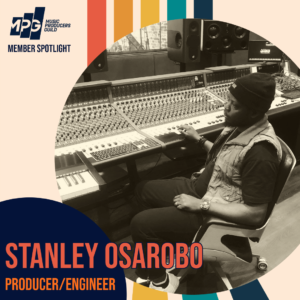 How would you define your main role on most of the projects you work on at the moment?
How would you define your main role on most of the projects you work on at the moment?My main role is multifaceted, as I often oversee projects from both a technical and creative standpoint. I act as the music producer, directing the sound design, leading musicianship, and ensuring high-quality audio production and recording. My background as a keyboardist, recording engineer, and audio engineer enables me to bring a holistic approach to the production process.
My journey has been inspired by the powerful impact music can have in transforming lives. Early influences like working with various artists and observing how a carefully produced track could resonate deeply with people fueled my desire to dive deeper into production. I was also inspired by pioneering producers who combine technical mastery with a deep understanding of music’s emotional impact.
Establish a clear vision for each project from the outset and ensure that everyone involved is aligned with it. A shared vision keeps the creative energy focused and streamlines the decision-making process, resulting in a smoother workflow and a cohesive final product.
What’s one tip you would like an MPG member to share with you?
I’d love insights on innovative ways to streamline live recording sessions, especially for larger ensembles. Learning how others maintain sound quality while managing various technical and logistical challenges would be invaluable.
Do you have any words of wisdom for people wanting to get into a similar music production role to yours?
My advice is to gain as much hands-on experience as possible. Start with the basics, understand the fundamentals of sound engineering, and don’t shy away from learning about every piece of equipment in your studio. Every step, no matter how small, builds your foundation. And remember that music production is both an art and a science; always remain curious and passionate about growing your skills.